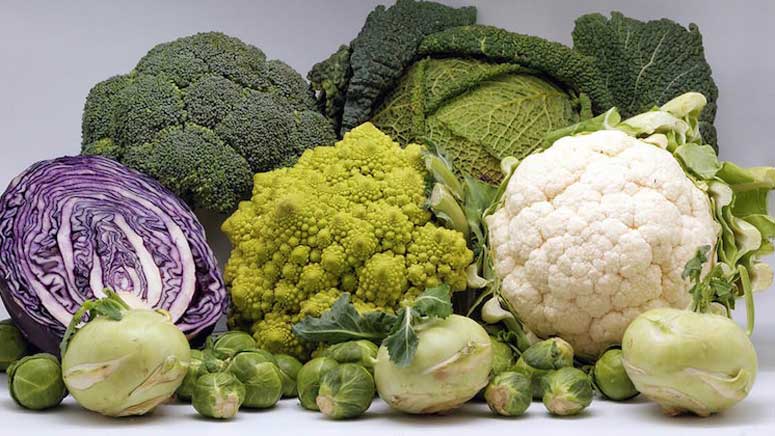Cruciferous Vegetables

Cruciferous vegetables include broccoli, cabbage, cauliflower, radishes, kale, brussel sprouts, and more. These vegetables contain an isothiocyanate called sulforaphane. Sulforaphane helps inhibit the growth of H. pylori in the stomach and is particularly abundant in broccoli, broccoli sprouts, and sauerkraut juice.
One study involving people infected with H. pylori found that eating 70 grams of broccoli sprouts every day helped reduced stomach inflammation. [3] It also had a significant effect on H. pylori infection markers.
You should include more cruciferous vegetables in your diet to take advantage of this effect. When taking these vegetables, it is best to eat them or only steam them lightly. This is to maximize the amount of sulforaphane you get to take in.













